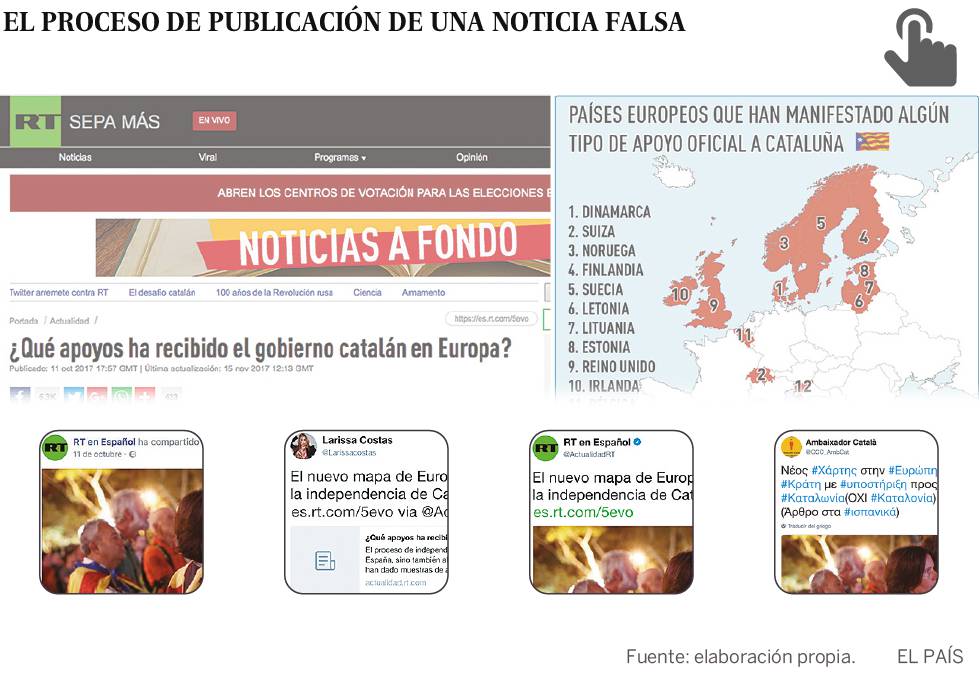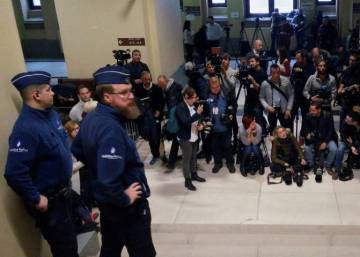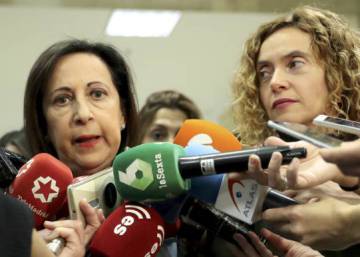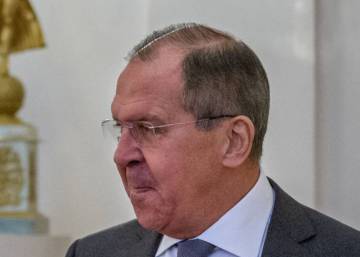NATO intelligence reports show spike in disinformation about Catalonia
Head of strategic communication center says Russia is trying to underscore divisions in the West
Madrid

The process behind fake news.
NATO intelligence reports show that Russian online networks have been focusing their activities on Catalonia in order to make the most of the secessionist crisis there.
The Alliance’s Strategic Communication Center of Excellence (StratCom) has detected a spike in messages relating to Catalan independence by the thousands of automated social media accounts that typically focus on global conflicts where the Kremlin participates actively, such as Ukraine or Syria.
There are networks of 1,000 to 10,000 accounts that coordinate with each other
The center warns that countries like Spain are not protected from this threat.
According to center director Janis Sarts, the ultimate goal of this Russian online activity is not to encourage Catalan independence, but rather to underscore divisions that will weaken the European Union and NATO itself, two organizations that Spain is a part of.
“The basic reason for this activity, really, is to create confusion and aggravate existing problems, not to achieve a result that favors one side or the other,” said Sarts in an interview. “I think it increasingly consists of creating chaos. They are much better at that than at achieving a specific result.”
StratCom is an international military organization whose role is to provide information and produce detailed reports about disinformation coming out of Russia and other countries whose interests may clash with those of the United States and its European allies.
We need to remember that we are the secondary audience or target
JANIS SARTS, HEAD OF NATO STRATEGIC COMMUNICATIONS CENTER OF EXCELLENCE
Funding states include Latvia, Estonia, Lithuania, Germany, Italy, Poland, the Netherlands, Britain, Finland, Sweden and France. If Spain were to become a sponsor as well, said center officials, it could devote resources to analyzing and intercepting messages in Spanish, Catalan or any other official language of Spain.
One report dated August 31 showed that between March 1 and this date there were 32,000 messages from 11,600 users that mentioned NATO and Poland or one of the Baltic states. A newer report on “robotrolling” shows that “Russian-language bots create roughly 70% of all Russian messages about NATO in the Baltic States and Poland” and that “overall, 60% of active Russian-language accounts seem to be automated.”
Since September, these same networks have shared messages about Catalonia, a fact that will be reflected in the center’s upcoming reports.
Sarts said that the practice of disseminating and viralizing Russian-language content about foreign crises is aimed at creating the sense that everybody has problems, that the West is full of hypocrisy, and that all governments act in similar ways.
“We need to remember that we are the secondary audience or target here,” said Sarts. “The main audience is in Russia and the reason for that is to legitimize the current elite in the Kremlin and keep them in power.”
On October 27, a NATO representative told news agencies that “Spain is a committed ally who makes important contributions to our common security. The Catalan issue is internal and must be resolved within the Spanish constitutional order.”
Pro-Kremlin websites
Russian state media have used NATO to attack Spain over its management of the Catalan crisis. On October 4, the outlet RT published the following headline: “Why isn’t NATO bombing Madrid for 78 days? – former British diplomat.” The former diplomat in question is William Mallinson, who drew parallels between Catalonia and Kosovo: “the situation is similar in very many ways,” he was quoted as saying.
This is a clear-cut case of RT’s manipulative use of information: Mallinson is a regular source for RT and a scholar from the little-known online Romanian university of Guglielmo Marconi who served in diplomatic positions as under-secretary in posts such as Nairobi. Mallinson, who regularly opines on RT about everything from refugees in Germany, the Syrian conflict, the war in Ukraine or the Greek government, would be considered a questionable source by any serious news outlet.
These and other stories, such as the one claiming that 12 countries support the creation of a new Catalan state, represent the first step in the Russian interference process, according to the NATO communications center.
Once the stories are published on pro-Kremlin outlets such as RT and Sputnik, the process moves to the second phase, which involves amplifying the information using real and automated online accounts. Both the NATO center and the EU’s East Stratcom Task Force believe that between 70% and 80% of the viralization of this content is a result of interaction by these automated accounts.
Sarts explained that these networks can be rented out: “Behind them there are what we could describe as actors with ties to states that control some of these bot networks. They can be networks of 1,000 or 10,000 accounts that basically coordinate with each other or which are ordered to coordinate.”
The big problem in terms of fighting this disinformation, according to a NATO report from November, is that Facebook is the world’s largest social media network, and many of its interactions are private. This means that analysts can only view public pages and groups, which represent the tip of the iceberg, notes the report. Besides, the Russian online scene is dominated by other platforms such as VK, Odnoklassniki or MoiMir, which have a collective 180 million users.
English version by Susana Urra.
PODEMOS, A TROJAN HORSE FOR THE KREMLIN?
There are several factors that have made Spain a target of Russian disinformation campaigns. One of them is the pro-Russian position held by Podemos, Spain’s anti-establishment party.
This is one of the main conclusions of a new report by The Atlantic Council, a US think tank. In The Kremlin’s Trojan Horses 2.0: Russian Influence in Greece, Italy, and Spain, the authors say that “while Spain may not yet have high-profile Trojan Horses, it has many Russlandverstehers: individuals and entities who sympathize with, subscribe to, or promote core elements of the Kremlin’s worldview and narrative.”
“These individuals are active in political settings, including government bodies, policy circles, and across social media, from different positions of influence,” write Francisco de Borja Lasheras and Nicolás de Pedro.
As for Podemos, the report says that “it mostly looks at the Russian model as an embodiment of a counter-Western narrative that puts on the table, in their view, the hypocrisy and abuses of the liberal order. (…) Though the party rejects the label of pro-Russian, it is the only main Spanish party calling for an immediate, unconditional lifting of sanctions on Russia.”
The report concludes that “Spain is at an inflection point: if Spanish policy makers take lessons from the experiences of other European countries and the United States, they might be able to get ahead of the Kremlin’s agenda. If not, then Spain will likely face increasing Russian meddling in its politics.”









































No hay comentarios:
Publicar un comentario